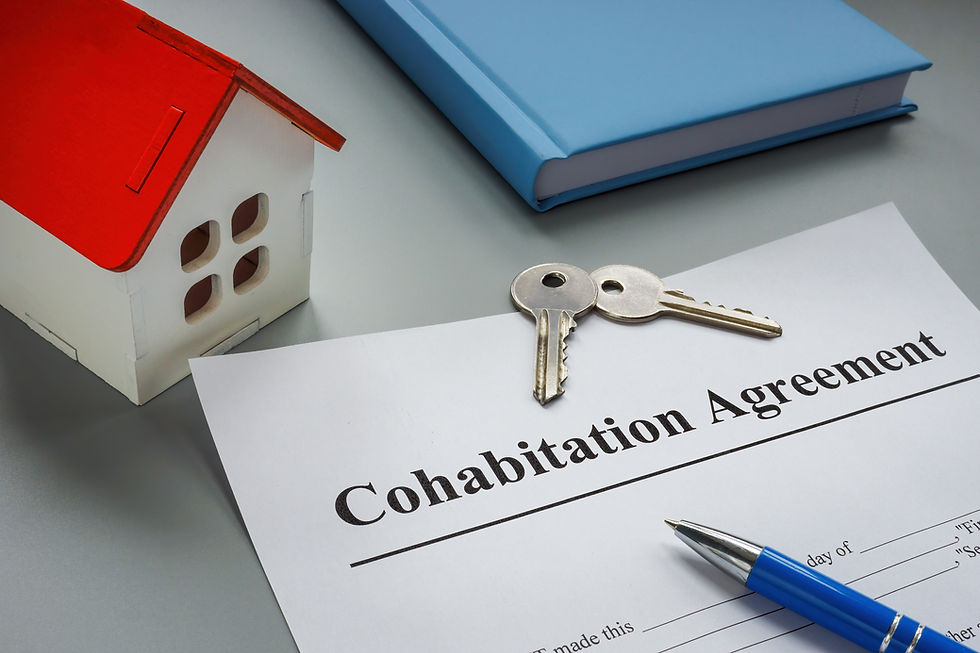Appointing a Curator for the purposes of protecting the mentally incapacitated
- administration9514
- Aug 1, 2023
- 4 min read
According to the Administration of Estates Act 66 of 1965, a curator is defined as, “any person who is authorized to act under letters of curatorship granted or signed and sealed by a Master, or under an endorsement made in terms of section 72“. A natural person may be placed under curatorship, entailing that his or her property is under the care and/or administration of the curator.
A letter of curatorship is defined as “any document issued or a copy of any such document duly certified by any competent public authority in any State by which any person named or designated therein is authorized to act as curator of any property belonging to a minor or other person“.
MENTAL ILLNESS & MENTAL HEALTH CARE USERS
A curator may be appointed on behalf of a natural person who is declared to be mentally ill or a mental health care user. Mental illness is defined as “a positive diagnosis of a mental health related illness in terms of accepted diagnostic criteria made by a mental health care practitioner authorized to make such diagnosis“ whereas a mental healthcare user is defined as “ a person receiving care, treatment and rehabilitation services or using a health service at a health care establishment aimed at enhancing the mental health status of a user, State patient and mentally ill prisoner and where the person concerned is below the age of 18 years or is incapable of taking decisions,…” in terms of the Mental Health Act 17 of 2002.
The law attaches no legal consequences or recognition to any legal transaction concluded by a person that is mentally ill or was mentally incapacitated at the time of concluding the transaction, thus such agreement and/or legal transaction is not only voidable but void ab initio and same cannot be ratified. Therefore, a mentally incapacitated person cannot enter a legal transaction without the assistance of a duly appointed curator, as he or she does not have the perquisite capacity to act or to understand the nature and consequence of the legal transaction, the curator must essentially conclude the legal transactions for and on behalf of the mentally incapacitated person. In legal proceedings the mentally incapacitated person must be assisted by curator ad litem because the law denies locus standi in iudicio., which is the lain term for a litigant’s interest in the legal proceedings which enables him or her to prosecute the claim and/or matter.
According to the South African law, there are 3 kinds of curators that can be appointed on behalf of a mentally incapacitated person, there curators are listed herein below:
Curator ad litem: usually an attorney or advocate appointed by a High Court during legal proceedings, to represent the best interests of a person who lacks the mental capacity to litigate;
Curator bonis: who administers the property of the person under curatorship; and
Curator personae: who looks after the person under curatorship.
RULE 57 OF HIGH COURT -APPLICATION
A curator is appointed by means of an application brought in terms of Rule 57. Any interested person who has locus standi, the right or legal capacity to bring an application to court, may apply for a Rule 57 application for the appointment of a curator. Usually the application is brought by a member of the mentally incapacitated persons’ family, for example a relative of the person in question.
The ex parte application (meaning that you do not need to cite any opposition to the application) is brought by way of notice of motion which must state the grounds upon which the applicant claims locus standi, in other words, what his or her interest in the matter is, and furthermore why the court should entertain or grant the application. It is important to note that the mental condition of the patient is the center of the whole application.
GROUNDS FOR RULE 57 (2) OF THE HIGH COURT
In terms of Rule 57 (2), the ex parte application must set out the following:
the grounds upon which the applicant claims locus standi to make such application;
the grounds upon which the court is alleged to have jurisdiction;
the patient’s age and sex, full particulars of his/her means, and information as to his/her general state of physical health;
the relationship (if any) between the patient and the applicant, and the duration and intimacy of their association (if any);
the facts and circumstances relied on to show that the patient is of unsound mind and incapable of managing his or her affairs; and
the name, occupation and address of the respective persons suggested for appointment by the court as curator ad litem, and subsequently as curator to the patient’s person or property, and a statement that these persons have been approached and have insinuated that, if appointed, they would be able and willing to act in these respective capacities.
The ex parte application should be supported by the below:
An affidavit from at least one person to whom the patient is well known, detailing the patient’s mental condition; and
Affidavits by at least two medical practitioners, both of which must be unrelated to the patient and have no interest in the application whatsoever.
THE DUTIES AND ROLE OF A CURATOR
The primary function of a curator ad litem is to manage the person under curatorship’s interests in court, and if the person under curatorship wishes to institute the proceedings, in other words act as the dominus litis.
After the court has granted an application declaring that the person under curatorship is unable or incapable of managing his or her affairs, said person can be appointed a curator bonis and/or personae. The curator bonis will manage the property and assets of the person under curatorship, whereas the curator personae, will take care of the persons physical wellbeing, it is commonly accepted that a person’s spouse may be appointed curator bonis and personae of their spouse.
In terms of Rule 57(12) to (16) of Uniform Rule of Court, a curator may be released from his or her duty as a curator. In these circumstances the Estate of the person under curatorship will not bear the costs of the application. However, the curator will not be released until the curator has filed accounts to the satisfaction of the master.
In summary, the high court application for curator empowers the court to make the below order:
To declare the patient in question of an unsound mind and incapable of managing his or her own affairs;
To appoint a curator ad litem; and
To appoint a curator bonis or curator personae or both, whichever the circumstances or facts dictate.
.png)



Comments